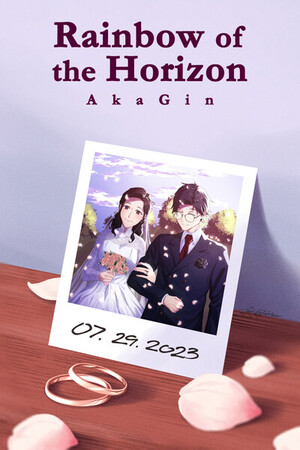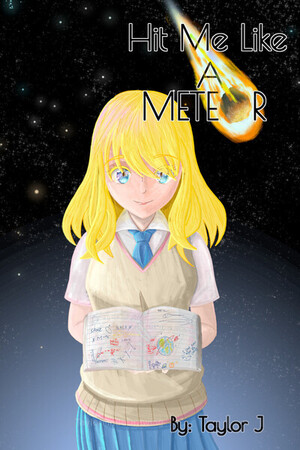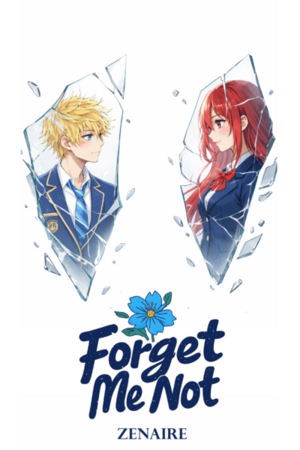Chapter 3:
Field of Kindness
Love Tales
Irra sat on the floor of his bedroom, knees pulled to his chest, tears blurring the world.
His mother’s laugh, once a melody that filled their small apartment, was gone, stolen by a sudden illness three months ago.
The hole in his chest was a cavern, jagged and raw, swallowing every spark of joy.
At sixteen, he felt like a ghost in his own life, drifting through school hallways where whispers of pity trailed him.
His sketchbook, once alive with drawings of his mother’s garden, lay untouched, its pages as empty as he felt.A strange warmth crept into the room, unnatural for the chilly autumn night.
Thick mist swirled around him, not cold like fog should be, but soft, like a blanket his mother might have tucked around him.
It smelled of fresh earth and morning light, like home before grief took it. The mist thickened, obscuring his bed, his desk, until he couldn’t see his own hands.
Panic flickered, but the warmth held him, whispering safety. Then, as suddenly as it came, the mist parted.Irra stood in a golden wheat field, endless and swaying under a sunrise that painted the sky in pinks and golds.
The air was alive, warm on his skin, carrying the scent of dew and grain. In the distance, a girl stood, her silhouette glowing in the dawn’s light.
Her face was a blur, like a smudged painting, but her presence was a quiet fire, steady and kind. She stepped closer, her bare feet brushing the wheat, and spoke in a voice soft as a breeze “Sadness is temporary, Irra. Find me.”
Before he could speak, she hummed a tune, heartwarming and fleeting, like a memory he couldn’t grasp “Beyond the tears, where sunlight weaves, A heart can bloom, like golden sheaves.”
The song wrapped around him, loosening the knot in his chest. The field shimmered, and she vanished, the wheat dissolving into mist.
Irra blinked, back in his room, the air cold again. His tears were dry, the cavern in his chest smaller, as if her voice had filled it with light.
Was it a hallucination? It didn’t feel like one his sadness was gone, replaced by a quiet hope.
He grabbed his sketchbook, sketching the field’s curves, the sunrise, but her face remained a blank smudge, uncapturable.
The mist returned whenever despair struck. At school, when kids mocked his worn shoes, calling him “the sad orphan,” the fog would come, warm and earthen, pulling him to the wheat field.
The girl was always there, her blurred face gentle, her voice steady: “Sadness is temporary, Irra. Find me.” She’d hum her song, each note a thread stitching his heart back together.
He’d wake lighter, sketching the field obsessively, filling his sketchbook with golden waves but never her face.
He searched for the field in real life, wandering parks and hills near his town, but found only ordinary grass and trees.Months passed, and the visits shaped him.
He started smiling at classmates, ignoring their taunts. He helped a younger kid pick up spilled books, feeling a flicker of warmth like the field’s sunrise.
But the mist still came when grief surged on his mother’s birthday, when he found her old scarf in a drawer.
Each time, the girl’s song grew clearer, her blur-face shifting sometimes sad, sometimes smiling, as if mirroring his heart.
He began to wonder was she real, or a piece of him he’d lost? One evening, at seventeen, Irra sat by his window, the scarf in his hands, its lavender threads fraying.
His father, distant since the funeral, worked late, leaving Irra alone with memories.
The mist came, thicker, warmer, pulling him to the field. The girl stood closer now, her glow brighter, her song louder
He handed him a wheat stalk, its tip soft against his palm. “Find me,” she whispered, her voice oddly familiar, like his own thoughts spoken aloud.
He reached for her, but the field dissolved, leaving him clutching the scarf, his heart steady. He sketched the stalk, its shape vivid, but her face stayed blank.
That night, he didn’t cry. The hole in his chest felt smaller, as if he was finding something or someone within himself.
School changed when Nora arrived. She was new, with eyes like open skies and a laugh that cut through the gray of Irra’s days.
She sat beside him in art class, her pencil dancing across her sketchbook, drawing cities Paris, Tokyo, places Irra’s mother had dreamed of visiting.
Nora noticed his sketches, the endless wheat fields, and grinned. “These are alive,” she said, her voice warm like the mist. “What’s the story?” Irra hesitated, then told her about the field, the girl, the song.
Nora listened, not with pity, but with wonder. “Maybe she’s guiding you somewhere real,” she said.
They talked more, sharing stories of loss (her brother, gone in an accident) and dreams (her wish to travel, his to feel whole).
Nora’s presence was a sunrise, steady and kind, like the field but human. Irra felt lighter with her, the mist coming less often.
Their bond grew. They walked home together, Nora humming a tune that felt familiar, like the girl’s song but earthier.
One day, she pulled him to a community garden, its wildflowers swaying like miniature wheat. “Close enough?” she teased, tossing him a daisy.
He laughed, the sound foreign but free. He sketched her that night, her face clear where the girl’s was blurred.
The mist didn’t come, and he wondered if he was finding what the girl meant.By eighteen, Irra was different.
He joined the art club, his sketches now of Nora, the garden, his mother’s smile.
The hole in his chest was no longer a cavern, but a quiet ache, softened by Nora’s laugh and their shared dreams.
They planned a trip after graduation to a nearby city, a small step toward her travel dreams, his peace. But one night, grief struck hard.
He found his mother’s recipe book, her handwriting looping across the pages. The mist returned, pulling him to the field.
The girl stood close, her blur-face almost clear, her eyes like Nora’s. She touched his hand, her fingers warm, and said, “Sadness is temporary, Irra. Find me.”
He woke, not in despair, but with clarity. The girl wasn’t real not a ghost, not a spirit, but his inner peace, a light he’d carried all along.
He’d found her in Nora, in himself, in the life he was building. The wheat field never returned. Irra didn’t need it. He stood in the community garden with Nora, sunlight spilling over the flowers, her hand in his.
She hummed her tune, and he joined, their voices weaving together. His sketchbook lay open, the last page showing a field, a sunrise, and a girl her face still blank, but her glow now his own.
He tucked it away, ready for a world where sadness was temporary, where he’d found what he’d been searching for.




Please sign in to leave a comment.